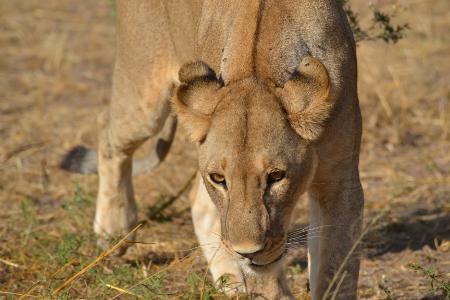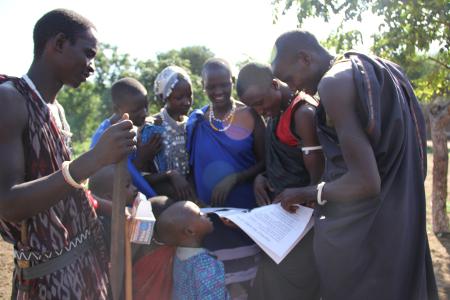Leandro Alecio dos Santos Abade
To document human-carnivore conflict hotspots, develop strategies for conflict mitigation, and promote large carnivore conservation in Tanzania’s Ruaha landscape.

Lioness.
Tanzania’s Ruaha landscape harbours one of the most important large carnivore population strongholds in the whole of Africa. These carnivores are however exposed to the highest known rate of human-induced carnivore mortality in East Africa due to intense human-carnivore conflict, which is mostly associated to carnivore depredation upon livestock. Such conflict is responsible for the killing of over 145 lions and other carnivores in the past 5 years in the villages surrounding Ruaha National Park (RNP). The high off-take of lions and other carnivores can substantially compromise the long-term survival of these populations, and the development of strategies for minimizing both conflict and carnivore retaliatory killing is imperative for protecting and safeguarding these carnivore population strongholds.

Maasai reading educational booklet.
In order to best reduce human-carnivore conflict, it is vital to understand how carnivores use this landscape, especially the village land around RNP - where carnivores are more likely to encounter and create conflict with people - and determine the specific areas where people and carnivores are most likely to overlap. Currently, little data exists on the potential influence of human activities and landscape structure on large carnivore use of habitat across the villages surrounding RNP, and the association of these factors with human-carnivore conflict. This study will therefore address this knowledge gap by mapping large carnivore habitat use in Ruaha across different land-use zones, including the National Park and village lands, via extensive camera-trapping, that will enable identifying the environmental factors associated with spatial patterns of human-carnivore overlap and the mapping of potential conflict hotspots.
The findings of this project will be used to produce evidence-based management recommendations for consideration by the Wildlife Division at Ruaha National Park and other regional stakeholders, and will help to inform the implementation of conflict mitigation strategies and future conservation recommendations for protecting the most important large carnivore population stronghold in East Africa.